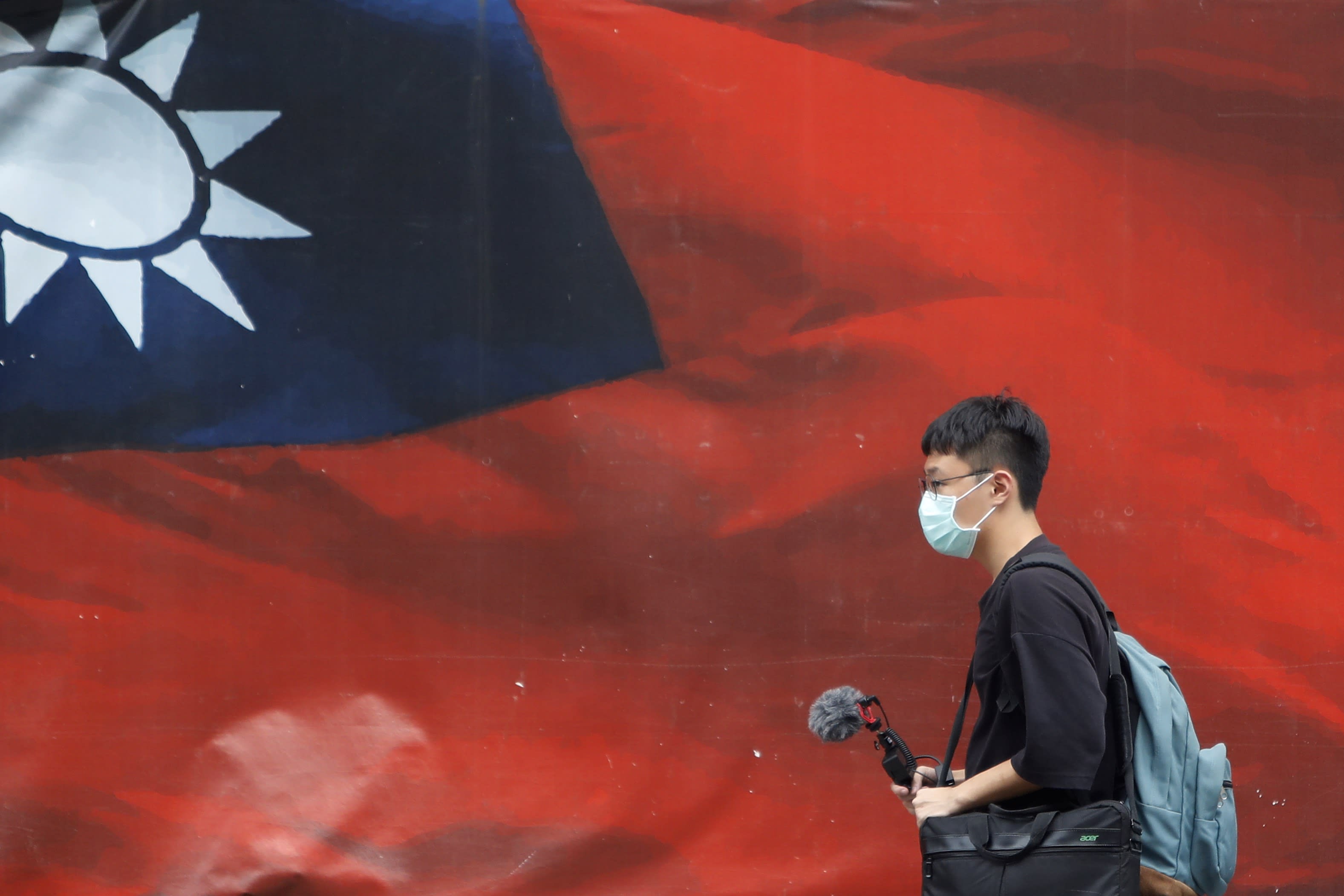In Taipei, a pedestrian wearing a face mask walks past a Taiwanese flag. NurPhoto | Getty Images | Ceng Shou Yi On Thursday, Chinese President Xi Jinping promised Taiwan’s “full reunification,” prompting a harsh rebuttal from the democratic, self-governing island, which slammed the Chinese Communist Party’s “dictatorship.” The Taiwan Strait, which is only about 100 miles wide (160 kilometers) at its narrowest point, separates Taiwan from mainland China. Although the ruling Chinese Communist Party in Beijing has never had control over Taiwan, it asserts that the island is a renegade province that must be reunited with the mainland at some point, perhaps by force. Xi declared “reunification” with Taiwan a “unwavering historical purpose” of the CCP and a “shared ambition” of the Chinese people in a speech commemorating the party’s 100th anniversary. In response, the audience exploded in applause. Following Xi’s address, Taiwan’s Mainland Affairs Council issued a statement criticizing the CCP. It stated that while the party had achieved economic success in China, it had also suppressed democracy, abused human rights, and become more totalitarian at home. “Democracy, freedom, human rights, and the rule of law are essential principles of Taiwanese society,” according to the Mandarin-language statement, which was translated by CNBC. The Taiwanese government, according to the council, remains committed to defending the island’s sovereignty and democracy. It went on to say that the Taiwanese people have always opposed the “one China principle” and asked Beijing to stop using military force against the island. The “one China principle” refers to the idea that there is only one central Chinese government, which is led by Beijing’s Communist Party. China has pressed its claims over Taiwan more strongly under Xi’s leadership, and Chinese warplanes have repeatedly breached Taiwan’s air defense zone this year. Taiwan has also become a point of contention between the US and China. The United States has gotten closer to Taiwan in recent years, which has enraged Beijing, which believes the island has no right to conduct its own diplomacy. China exerts pressure on other nations and international organizations to avoid dealing with Taiwan on their own. The G-7 group of advanced economies, which includes the United States, requested for Taiwan to be allowed to participate in World Health Organization conferences in May. On Wednesday, Bilahari Kausikan, a former senior diplomat from Singapore, told CNBC that Taiwan is the most dangerous flashpoint in US-China ties./n
Read MoreTaiwan lashes out at Beijing after Chinese President Xi Jinping pledges ‘complete reunification’
2021-07-01T07:36:25-04:00July 1st, 2021|





